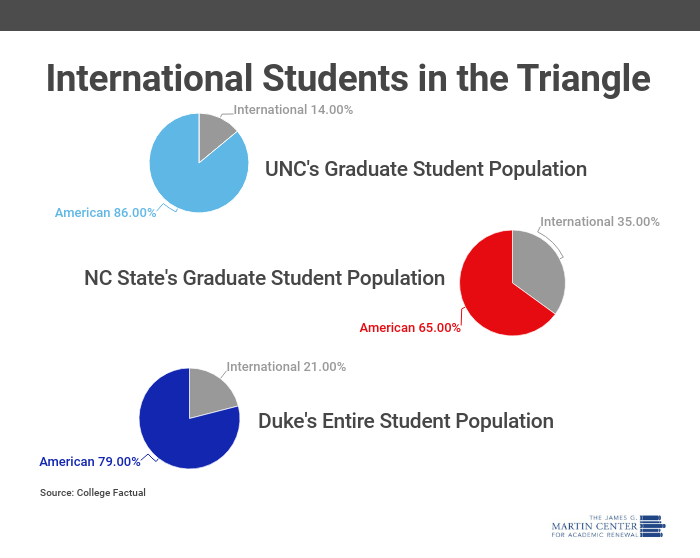On July 6, the Trump administration announced new guidelines that would revoke the F-1 visas of international college students if their schools did not hold in-person classes in the fall. After much public outrage and criticism of the guidelines, the White House rescinded its plan a week later.
The Chronicle of Higher Education notes that about 58 percent of colleges plan to hold in-person classes, though that number has fallen from 64 percent in May and will probably continue to fall. Originally, the directive noted that students taking in-person classes with a single online course may remain in the U.S., as well as students taking hybrid courses with guaranteed in-person aspects.
MIT and Harvard were quick to sue President Trump in preventing the re-entry of international students. Schools like the University of North Carolina at Chapel Hill and Duke University have released statements in support of the lawsuits against the administration and their international students.
Recently, the Trump administration announced that ICE will not allow any new international students into the United States if they are only taking online courses.
If universities cannot safely reopen and bring back students, American or foreign, the directive would have had a massive effect on university budgets and, especially, graduate schools.
NC State, for example, cited data that North Carolina’s “21,092 students contributed $670.6 million and supported more than 8,600 jobs” in the North Carolina economy. North Carolina’s top schools have large international populations. At UNC, foreign students make up 14 percent of the graduate student population and total 1,627 international students overall. Duke and NC State both have large international student populations with 3,369 students and 4,328 international students, respectively.
If international students could not stay in the U.S., they may have dropped out. That would ultimately harm colleges: international students typically pay much more in tuition than domestic students. Losing that revenue on top of other pandemic-related losses could have left higher ed in an even-tighter spot.
Losing international students does not mean giving more American students spots in universities or grad schools. American schools attract top talent from around the world, who then subsidize American students and create jobs. The ability to draw international students to this country demonstrates a high quality of higher education that cultivates limitless opportunities.
Kathryn Goodwin is a Martin Center intern and a junior studying political science at the University of North Carolina at Chapel Hill.

